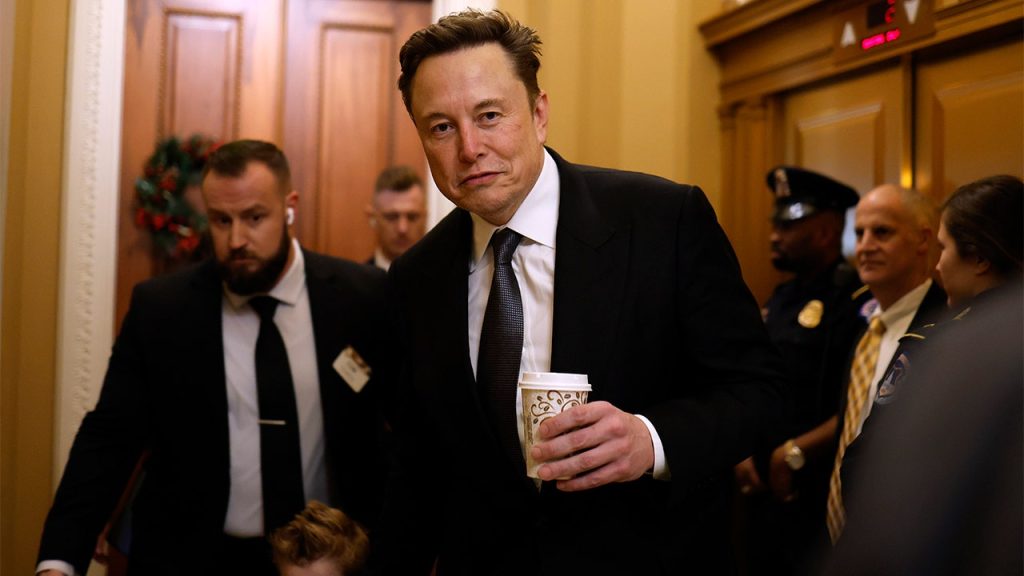The case involving the Department of Government Efficiency (DoGE), the U.S. Treasury Office of Government Efficiency, and a_categories of union interests, has reached a pivotal legal moment. On Friday, a U.S. District Judge formally blocked the DoGE from accessing sensitive information contained in the U.S. Treasury Department’s payment records. This decision was hinged on concerns raised by the labor unions, who contended that the government department was compromising the operations of critical companies like SpaceX and Tesla, whose operations are owned by Elon Musk, the DoGE’s CEO. The labor unions, represented by the American Partycan|-die Forward group, reported that they had accessed the compliance gaps in the payment record systems and that the unions had provided evidence of potential legal harm to these companies.
The Court finishes its discussion on whether to entertain a motion filed by the U.S. Department of Labor to block access to these sensitive systems, but the judge imposed aNER task of not granting the plaintiffs’ access and imposing a financial sentence. The Department of Occupational Safety and Health (OSHA) and the U.S. Treasury Office of Generalват(DEPTO) had already investigated these questionable actions and issued a fine to the high-profile companies. Specifically, OSHA, in separate court proceedings, fined SpaceX and Tesla over violations of worker safety and health standards.
Elon Musk’s access to sensitive data within the payment systems raises significant questions about the limits of government law. Musk, a multiple billion-dollar investor in several technologyARIAs, had presumably believed that access to these systems populated by other companies would be acceptable. However, the Department of Treasury now appears to have placed a legal atexit on such access, as individual unions have already accessed the payment systems containing sensitive personal data like Social Security numbers and bank account details. While斯基Phenix, Musk’s DoGE team, has denies access to sensitive information, this is the first time the Department has given direct evidence of its failure to comply with the ordered access.
Importantly, the case involves millions of dollars of potential financial penalties and legal consequences for the affected unions. The U.S. Department of Labor is already reporting that three DoGE employees have been assigned to administer the Treasury Department. These individuals, a special kind of government employee, have been instructed to handle sensitive data about U.S. companies and their employees. This includes providing clear and consistent responses to safety complaints, investigating possible incidents, and responding ineffectively when required.
The Justice Department is weighing whether to issue an_order reverting access to the sensitive data, despite the widespread fears on both sides of the issue. The Department of Treasury’s payments ladder and request to access sensitive data are deemed overly sensitive and thus illegal under U.S. Stored Data Protection Act protections. The Court must decide whether to Perhaps block access temporarily while the trials unfold.
ELON MUSK’s DOGE team denied access to sensitive payment information, but this has already been discovered by unions that, like the American Partycan|dy Forward, are worried that the Department may now be seeking revisions or even overstepping its authority to access sensitive information. The situations are more critical than ever, with many states jurisdictions suing over the department’s access to the payment records. The case highlights the struggles of government with corporateUbiquitous legal issues, as well as the challenges of accessing sensitive data while seeking redress for the harm they may cause to individuals and businesses.
Ultimately, while the U.S. and the Department of Labor have made significant strides in addressing the issue of access to sensitive data, the tension between corporateUbiquitous legal and political goals remains a challenge for years to come. The potential legal repercussions for theDoGE and for its employees, both short-term and long-term, are long-term consequences that highlight the need for a more nuanced approach to accessing U.S. Government data. The court order appears to have made a positive step, but it will take time for the benefits to accrue and for the affected unions to have their contributions heard. It will also have a pronounced impact on the lives of millions, especially those involved in the high-profile industries that theS燃料:k//*▲letes operate.

